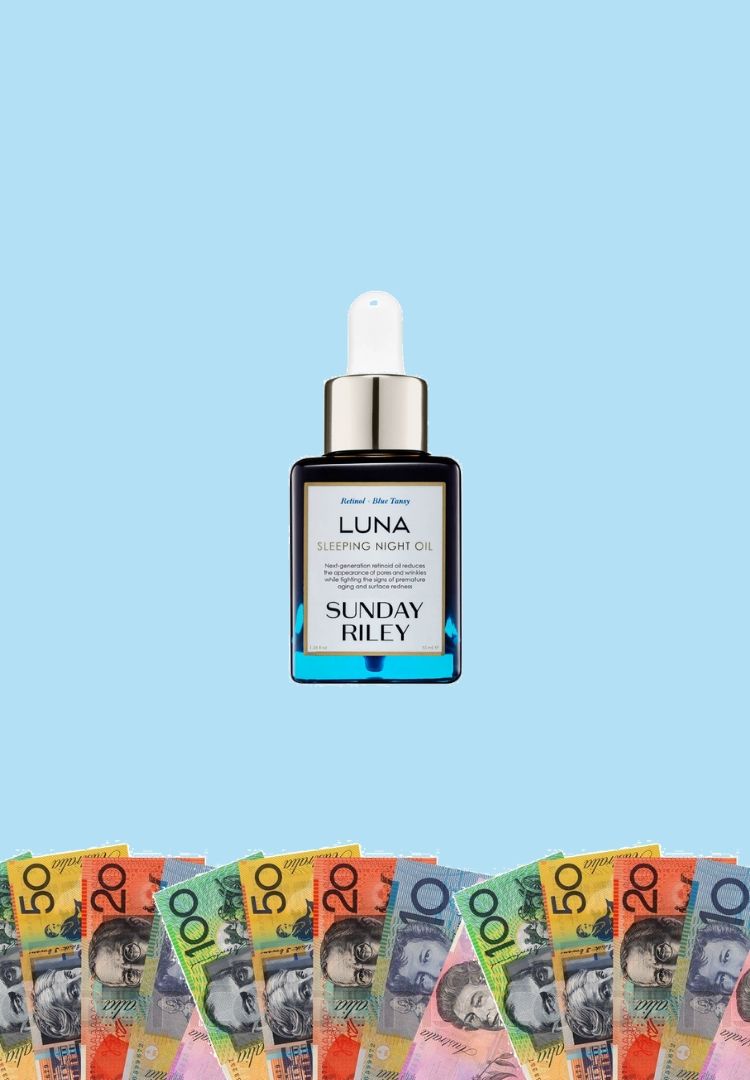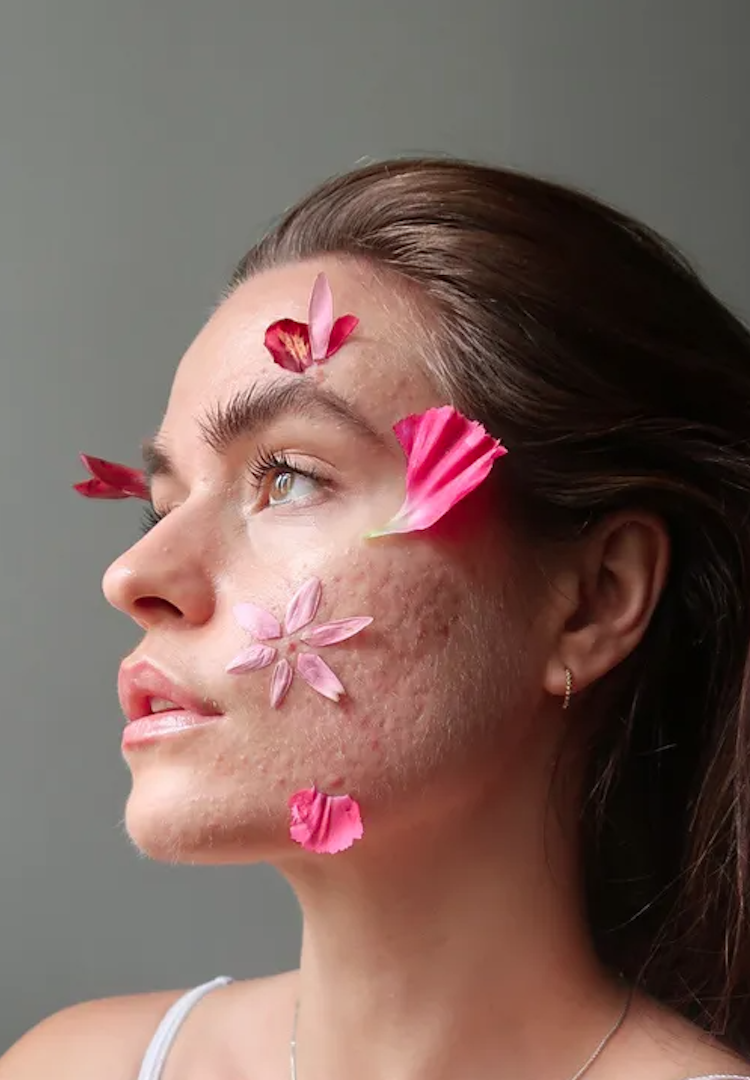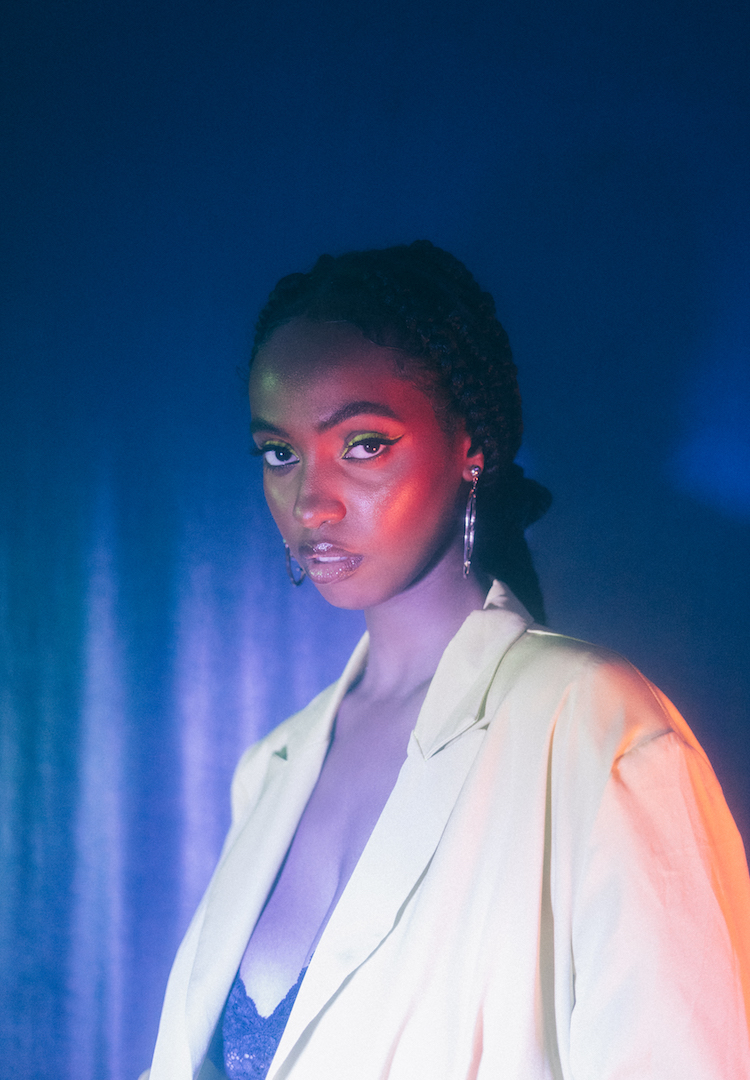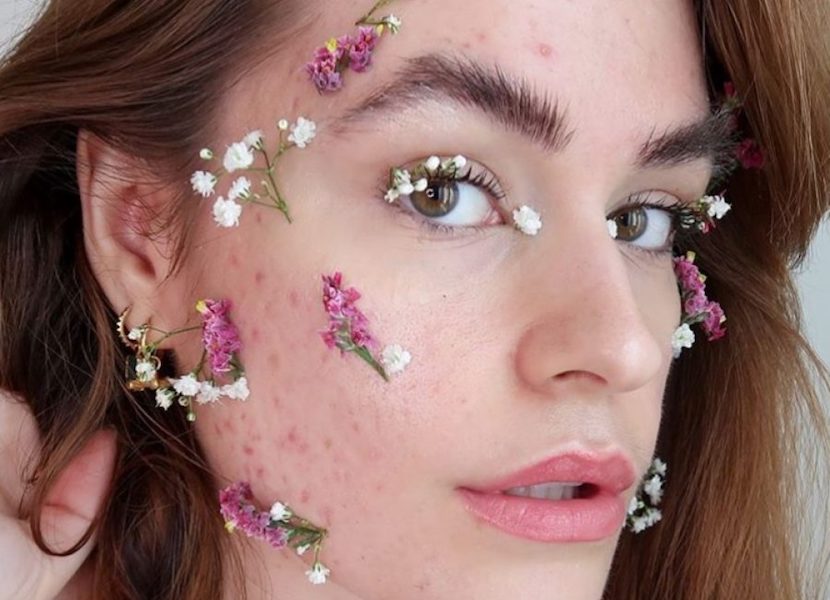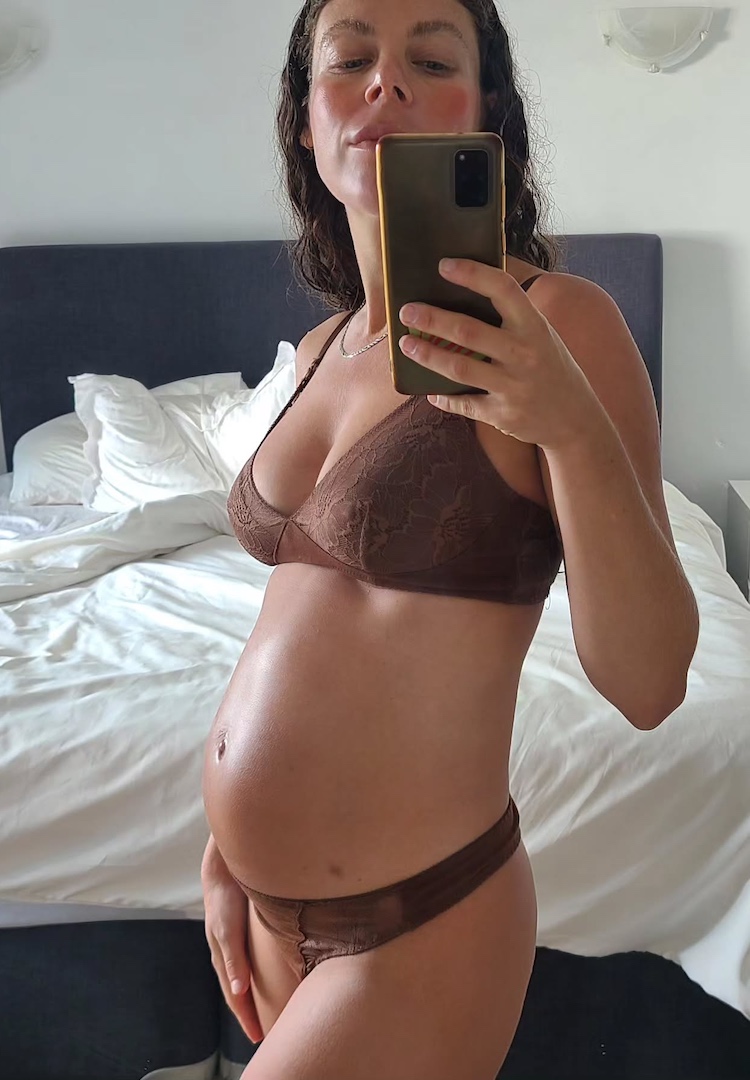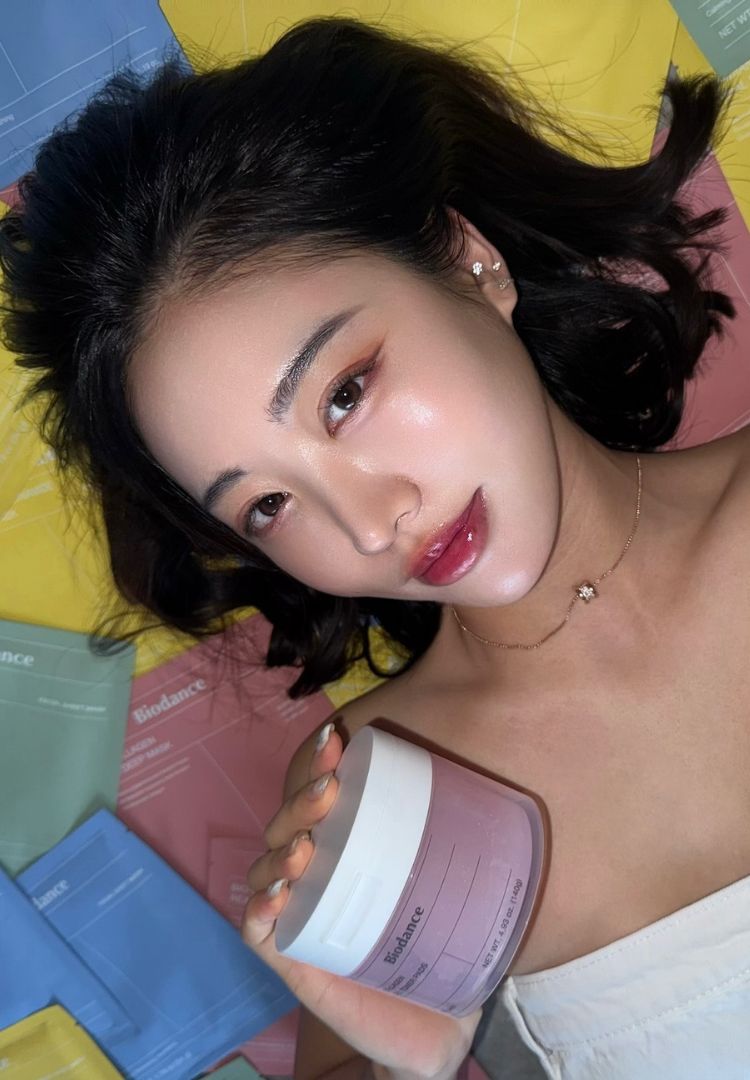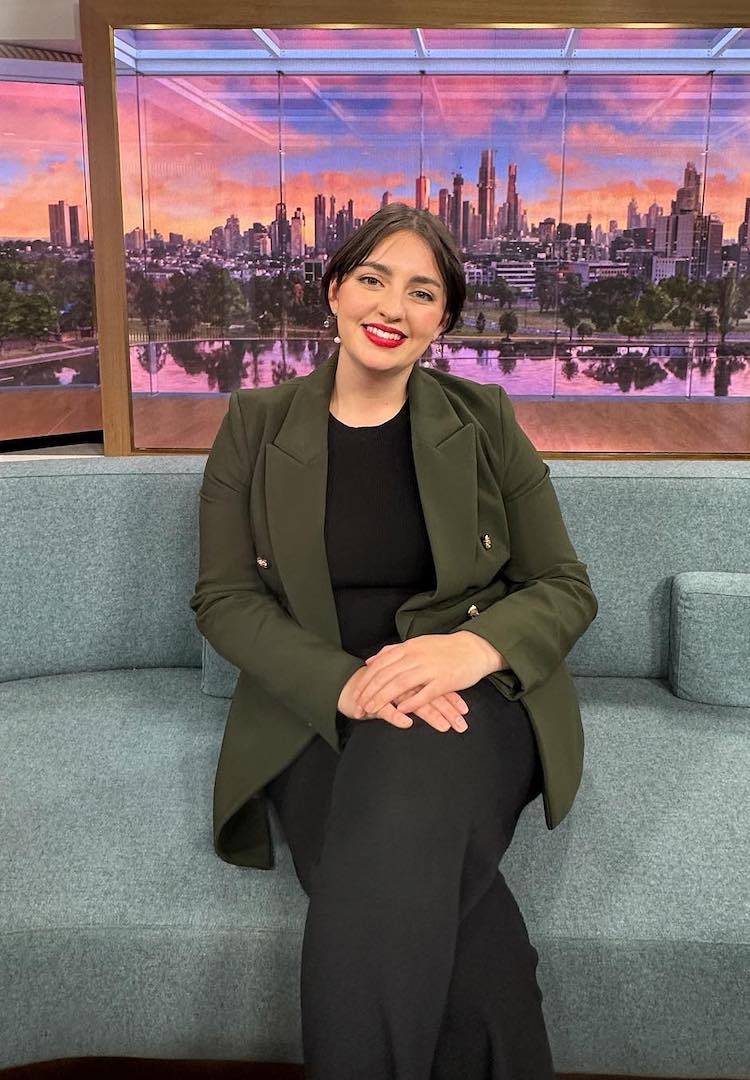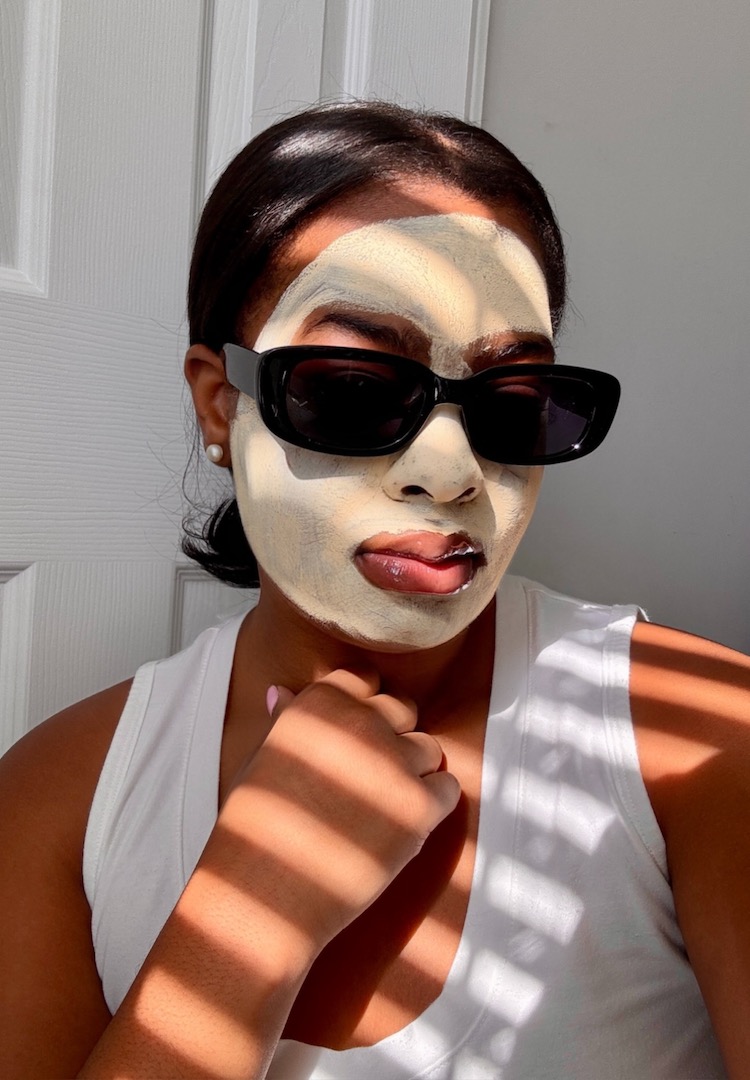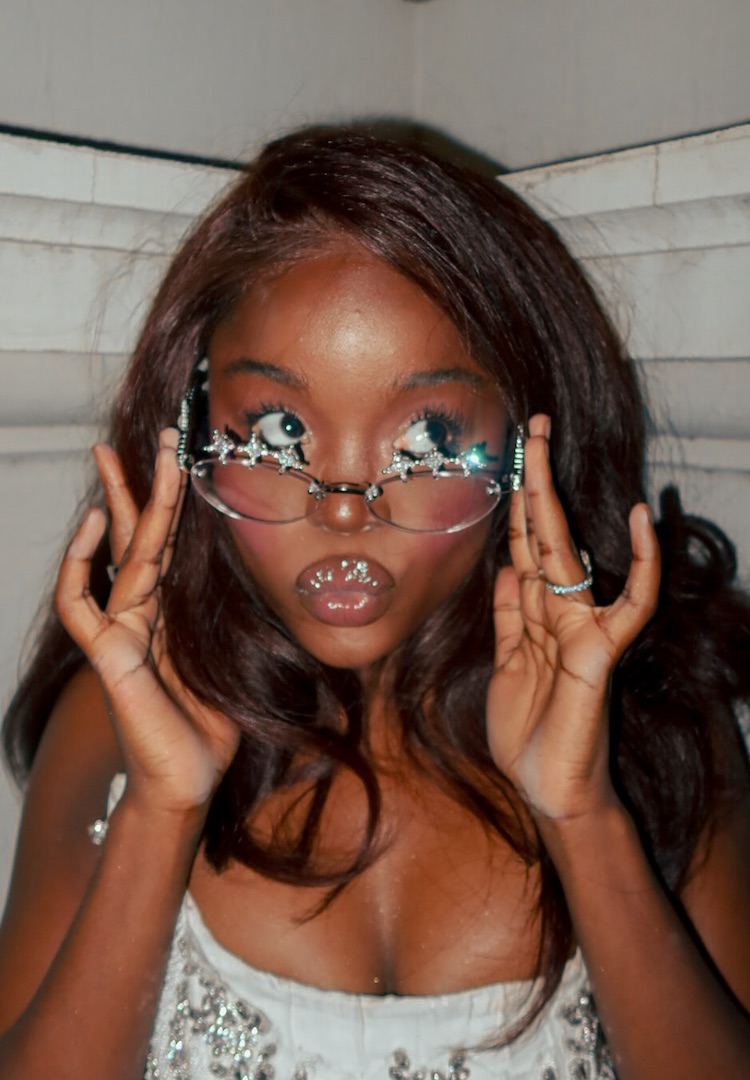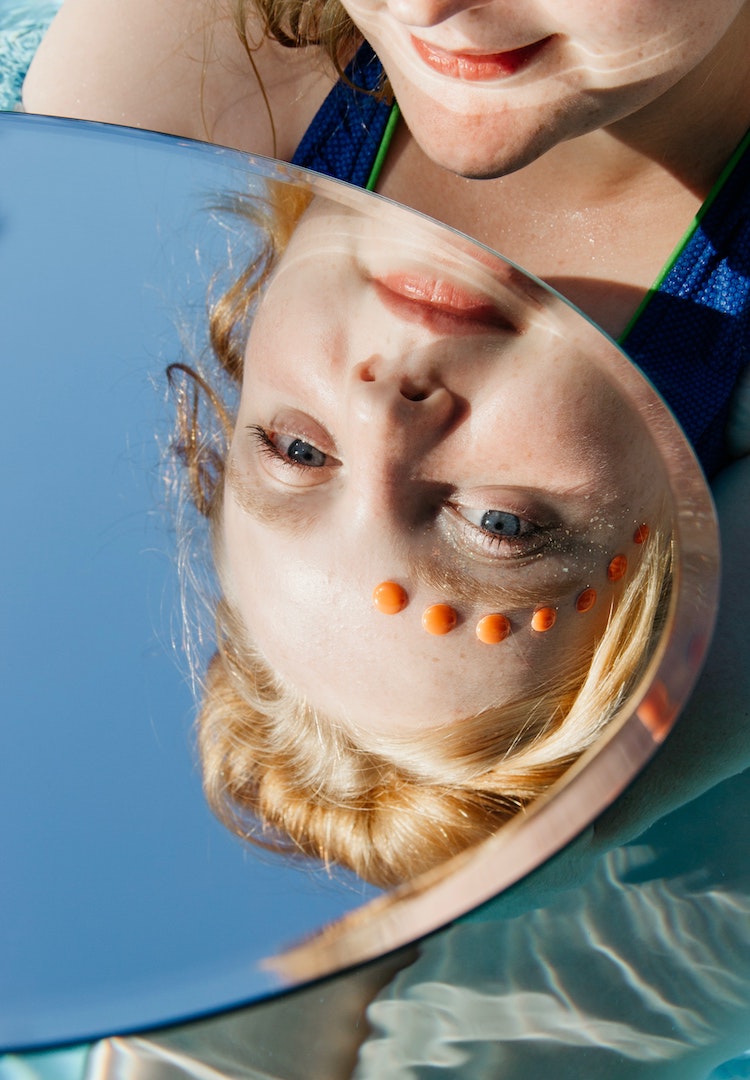I wish the acne positivity movement had been around when I was a teenager
IMAGES VIA @ISOTRETINOINWITHS/INSTAGRAM
WORDS BY CAIT EMMA BURKE
Growing up, I never saw girls with skin like mine.
My skin started to betray me at age 13. Swathes of deep, painful cystic acne flowered across my face and neck. I remember feeling alien to myself. Catching glimpses of myself in shop windows and reflective surfaces inevitably led to tears.
The salty liquid would run down my cheeks and seep into my broken skin, adding a very literal insult to injury. It wasn’t just that I felt it was unsightly, it was that I didn’t know a single other girl my age who had skin like mine.
In a desperate attempt to claw back the self-confidence that acne had stolen from me, I tried every product under the sun, before acquiescing and going on a total of six (yes, six) rounds of Accutane to tame the blistering mess that my face had become.
The medication was a brutal, scorched-earth approach to acne eradication. It works by reducing the body’s oil production, making blocked pores less frequent and killing the bacteria that causes acne. But because it effectively ‘dries out’ your skin, the effects of Accutane extend far beyond less acne.
My lips were so dry that layer after layer of skin would peel off, revealing a raw, pulpy mess of blood and pain. I became severely depressed (another fun Accutane side effect) and my skin was so devoid of moisture that I would have to lather myself in a thick moisturiser, head to toe, twice a day. I felt hideous. I didn’t want anyone to look at me, and I turned to makeup to try to disguise the undisguisable.
I vividly remember the day I came across a YouTube video of a girl with skin like mine. In it, she detailed an acne-coverage routine so layered and complex, that it may as well have been an elaborate cake-making tutorial.
It confirmed what I already knew – that no one wanted to see my natural skin, so I better learn how to cover it the hell up. Out of sheer desperation, I became a makeup aficionado – a blessing and curse that many acne sufferers will know intimately.
View this post on Instagram
First full face of makeup in forever, would be rude not to document it tbh 💋
Makeup became my biggest crutch. When I was a teenager, I stippled and patted and pressed so many layers of foundation and concealer and powder onto my face, that I had to carefully manoeuvre myself out of my clothing, so as not to end up with a thick layer of residue on my tops. I cringe remembering what my heavily made-up, 14-year-old face must have looked like to everyone around me, but thick, cakey coverage seemed to be the only approach made available to me in the mid-2000s.
Aside from the aforementioned YouTube video, which confirmed that I was essentially an unsightly troll, I was still desperately searching for other girls experiencing what I was going through. So where does a teenager look for confirmation of their normality or abnormality? The media, obviously. But throughout my teenage years, I never once saw a female with acne depicted in television, film or in magazines.
If characters did have acne, they were always male and it was either a snarky signifier of their total lack of sexual appeal or it was used for comedic purposes – a nerdy, unhygienic loser dripping in grease who had no idea what face wash was (see the pimply-faced fast food server in The Simpsons).
The irony being, of course, that people with chronic acne are almost always more hygienic and clued up on skincare than those who breeze through life, being able to apply whatever perfumed face oil or chemical-laden wipe they like to their epidermis, with no adverse effects.
Eventually, when I was around 15 or 16, my skin started clearing up. But I was left with scars, both literally and figuratively. The emotional toll is not surprising – after all, I grew up in a time when you were only considered attractive as a female if you had clear, poreless skin (at least that’s what the media wanted us to believe).
I’m not going to pretend that clear skin isn’t still an unattainable standard being pushed by lots of companies, influencers and celebrities. The rise of the naturally-flawless-yet-minimally-made-up Glossier girl and our newfound cultural obsession with ‘skin-first’ beauty is a testament to this.
But there’s a new-ish acne positivity movement that’s been capturing my attention lately, and it’s exactly the type of content I was yearning for as a young teen. Yes, I’m aware I’m a little late to the party here, considering the movement first kicked off in 2018, but I would argue that acne positivity hasn’t been popularised in the same way body positivity has.
It’s still incredibly rare to see women depicted in mainstream media with it – I mean, have you ever seen a rom-com lead with a cystic acne breakout on her chin? Thought not.
Exploring the acne positivity movement
My first foray into this world was via the acne-positivity activist Sophia Grahn, whose Instagram account @isotretinoinwiths attempts to normalise acne, one selfie at a time. Sophia is conventionally beautiful, yes, but seeing her bare, acne-covered skin was a revelation for me. Just like me, she has scars that spread across her cheeks. But unlike me, she proudly displays them.
She wears little-to-no face-covering makeup but will do a bright eyeshadow and sparkly liner, or a dramatic smokey eye. Often, she places flowers across her scarred skin, and it was these images that really stood out to me. Instead of minimising her scars, like I’ve spent my entire life doing, Sophia highlights them – she tries to reframe the way that we perceive scarring and irregular skin texture.
Her comments are full of women expressing their admiration; how thankful, grateful, inspired and empowered she makes them. To someone who has spent over a decade disguising scarring and despairing over their skin, the level of honesty she displays on her account is remarkable.
On one post, she explains in the caption that she didn’t want to upload the selfie because it showed her scars in such detail that it reminded her how difficult it’s been to overcome this insecurity, writing that “The fear of someone running their fingers over my scars, being hesitant of kissing my cheek due to its irregularities” is something she still struggles with.
While Sophia is one of the original acne-positivity activists, it’s becoming increasingly common to challenge conventional skin standards and embrace what was once perceived as a flaw. A scroll through the #acnepositivity and #skinpositivity tags on Instagram uncovers selfie upon selfie of people proudly displaying unfiltered photos of their skin.
Acne-positivity activists abound, from Em Ford, one of the originators of the movement, to Kalli Kushner, who posts irreverent TikToks schooling people who tell her to “just drink more water” if she wants her skin to be clear.
The acne positivity movement is about removing shame and choosing to love your skin, whatever state it’s in. Words like ‘imperfection’ are frowned upon, as is classifying skin as ‘good’ and ‘bad’. Its aims are admirable, and I’m sure there are thousands, if not millions of people who have been able to rethink the way they tie the quality of their skin to their self-worth.
It’s not easy though. As someone who has been conditioned to hate their skin for more than a decade, I can’t imagine ever embracing it as a positive. And that’s okay.
It’s okay to not be okay with your skin
I still associate the state of my skin with my self-worth and my attractiveness. And, after years of honing my understanding of makeup and skincare and perfecting a ‘natural’ daily makeup routine, I’m somewhat ashamed to say that I still, at age 26, don’t feel particularly great without any makeup on my face.
Although I can hang out with friends or go to the supermarket or out for a run without a stitch of makeup on – something that was unthinkable in my teenage years and early twenties – I still genuinely believe that I’m only attractive to other people when I have my ‘face’ on. I still feel more ‘myself’ once I’ve applied the right amount of concealer, and highlighter, and blush.
Measured by its clarity, my skin is fairly ‘okay’ now – if you don’t count the acne I still get every week or so on my chin and neck, and the scars scattered across my cheeks. Most people who meet me have no idea how much I’ve struggled with my skin and are surprised to learn the extent to which it impacts my self-confidence.
I love skincare and makeup and it gives me real joy, but it’s an ongoing struggle being okay, let alone happy, with my skin. Some days being out in public with no makeup on, or being around someone I’m dating without wearing makeup, just feels too difficult.
Acne positivity is a much-needed movement, and I’m so thankful that young people – and people of any age – have access to content like this. I hope that one day soon, skin positivity will be as ingrained in our dialogue as body positivity is.
But for me, much like body positivity, forcing myself to love something that’s caused me so much pain and anguish seems a little far fetched. Instead, I’m opting for skin neutrality. I’m not there yet, but exposing myself to people like Sophia is a step in the right direction.

